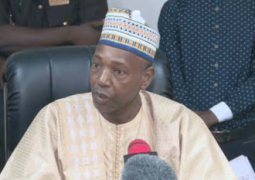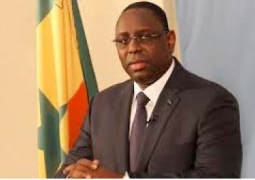
It could be recalled that the president of The Gambia, Adama Barrow took the first step in launching the Security Sector Reform process in 2017 and subsequently the National Security Policy in 2019.
The National Security Strategy is intended to serve as an overarching national strategy document in framing The Gambia’s pursuit of national security, said Rtd. Col. Momodou Badjie, national security adviser to the president.
Col. Badjie said national security is a dynamic and multifaceted issue that requires a solid yet flexible approach. He said that the NSS presents the guiding principles of Gambia’s security and its national interests and objectives, demonstrates the security environment surrounding The Gambia and the challenges to national security.
“The strategy will also enhance our prevention, protection and response capabilities to security threats in an increasingly complex environment.”
Rtd. Col. Badjie said security sector reform is crucial to making development efforts effective, particularly in the context of post authoritarian reconstruction, ‘there cannot be sustainable development without stable effective and democratically accountable security institutions.’
United Nations representative in The Gambia, Sarafina Wakana, said that from the global dimension, the United Nations commitment to 2030 Agenda and sustaining peace makes it clear that in their reform efforts, they should support security systems which are people focused and accountable.
She said from the regional perspective the cross border challenges require a collaborative approach that reduces incidences of conflicts and increases security, enhances social coercion and builds resilience across the region as a whole.
She continued that the UN and its international partners encourage a meaningful and inclusive collaboration across the security sector with other ongoing reform processes including strengthening the rule of law, human rights and on transitional justice.
The attorney general and minister for Justice, Dawda Jallow, said the formulation of the NSS and SSR Strategy as the primary framework documents for the government and security services is another manifestation of government’s commitment to ensuring that national security is preserved and sustained.
“As we live in an increasingly interconnected, complex and dangerous world, national security matters have become increasingly complex and multifaceted.”
Minister Jallow further said that the politics of national security can be characterised as the integration of its security, foreign and diplomatic policies to coordinate its political, economic, and psycho-social and security potentials to guarantee against actual or potential external or internal threats as well as the achievement and preservation of its core values and essential national objectives.
He further said that the government shall ensure full civilian oversight and democratic control of the security sector in line with international standards.
“As a country with a legacy of human rights abuses, the government is acutely aware of the need for a transformation and development of the security sector with the fervent belief of the contribution that the sector could make in the process of state building, democratisation and peace building,” he said.




